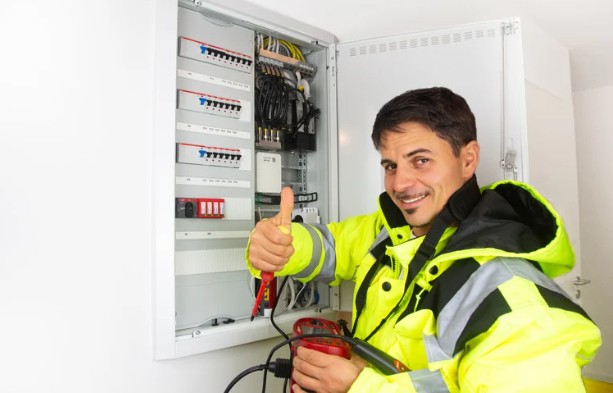Is Your Spa Safe? What You Need to Know About Electrical Setup

Installing or maintaining a home spa is a luxurious addition, but it comes with important responsibilities—especially regarding the electrical system. Spas and hot tubs rely on electricity to power pumps, heaters, lights, and control panels, making proper wiring essential for safety.
Faulty wiring is a leading cause of spa-related hazards, including electrocution, circuit damage, fires, and system failures. To ensure safety and code compliance, it’s crucial to prioritize proper electrical setup—whether you’re installing a new spa or maintaining an existing one.
Professionals specializing in spa electrical wiring in Sandy stress the importance of regular safety checks and adherence to regulations.
Common Electrical Requirements for Spas

Before enjoying your spa, you need to ensure that the electrical components meet current safety regulations. These requirements include:
- Dedicated Circuit: Most spas require a dedicated 240V circuit, isolated from other home appliances to avoid overload.
- GFCI Protection: Ground Fault Circuit Interrupter (GFCI) breakers are essential for preventing electric shock, especially in wet environments.
- Proper Conduit and Wiring Materials: Outdoor-rated conduit and THHN/THWN wire types are typically required to handle moisture and temperature changes.
- Correct Breaker Size: The circuit breaker must match the spa’s power needs, typically ranging between 30 to 60 amps depending on the model.
- Bonding and Grounding: All metal components (both in the spa and nearby) must be properly bonded to avoid stray voltage and grounding issues.
Both residential zoning and seasonal weather shifts can impact outdoor wiring conditions, it’s essential to use materials and methods approved for local codes and climate conditions.
Warning Signs of Unsafe Spa Wiring
Even a properly installed spa may develop issues over time. Some warning signs that your system might need a safety inspection include:
- Flickering Spa Lights or Controls: Unstable power flow can point to grounding or connection problems.
- Frequent Tripped Breakers: This could mean your spa is drawing too much current or has a short somewhere in the system.
- Burning Smell Near the Panel: This is a critical red flag that could indicate overheating wires or components.
- Unresponsive Jets or Heater: If certain features stop working, the fault may lie in the wiring or GFCI breaker.
- Corrosion or Water Near Electrical Boxes: Moisture intrusion is a major safety hazard, especially in outdoor installations.
If you notice any of these symptoms, you should halt spa use immediately and consult a qualified technician who understands spa electrical wiring conditions.
Why Local Code Compliance Matters
Every city follows electrical codes based on national standards like the NEC (National Electrical Code), with adjustments for local conditions. These regulations are designed to protect homeowners from risks specific to their environment. For example, outdoor spas require careful attention due to seasonal moisture from rain and snow.

Proper sealing, conduit placement, and GFCI installation are critical and enforced through local inspections. Ignoring these codes can result in failed inspections, fines, or even serious injuries. Hiring a licensed contractor familiar with spa wiring regulations ensures your system meets safety standards, protecting both your investment and your family.
Choosing the Right Professional
While DIY projects can be satisfying, electrical setup for spas is not the place to cut corners or rely on YouTube tutorials. Here’s what to look for in a qualified professional:
- Proper Licensing and Certification
- Experience with Spa and Pool Installations
- Familiarity with Electrical Codes
- Willingness to Pull Permits and Schedule Inspections
- Clear Warranty or Service Guarantee
Asking the right questions and hiring the right person will give you peace of mind, especially when dealing with high-voltage systems in a wet environment.
Maintenance Tips for Long-Term Spa Safety
Once your spa is wired and working, don’t treat it as a “set it and forget it” feature. Preventive maintenance can go a long way in keeping things safe:
- Test GFCI breakers monthly
- Check control panels and lights for glitches
- Keep water away from electrical panels and equipment
- Schedule annual inspections before seasonal use increases
Additionally, ensure that your spa cover stays secure and that no landscaping or yard features interfere with wiring or panels.
Conclusion
Owning a spa is a great way to relax and improve your well-being, but only if it’s installed and maintained safely. Electrical safety, from meeting code requirements to spotting early warning signs, should be your top priority. The best first step is to hire a professional electrician who specializes in spa wiring. This ensures your home spa remains a safe retreat, not a hidden danger.



